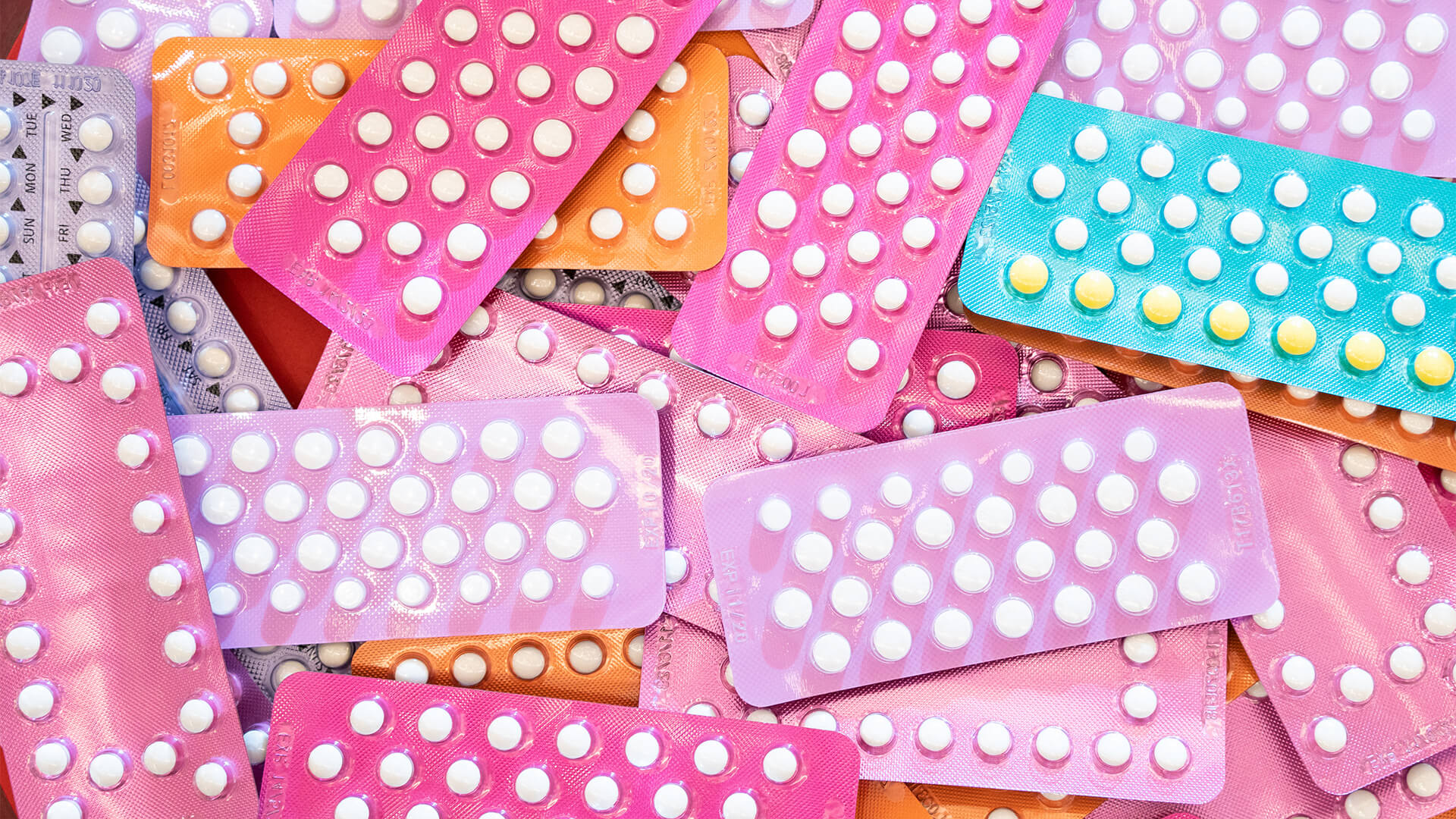When it comes to contraception, there are so many options it can be difficult to know where to start. What’s more, with so much speculation and different rumours surrounding contraceptive methods, it can often be tricky to find the facts and know which method is best suited to you. The pill, which is the most popular form of birth control for women in England, has long been surrounded by questions and between 2019 and 2020, there have been significant increases in search volumes around pill-related queries. So, let’s find out what people have been searching for the most frequently, and get to the bottom of some of the most asked questions about the pill.
What is the pill?
Before we get into the questions that you’re most curious about, let’s make sure that we’re all on the same page when we’re talking about ‘the pill’. Often referred to as ‘the combined pill’, the pill is a type of oral contraceptive that contains artificial versions of the female hormones oestrogen and progesterone. There are many different brands of the pill, and it’s important to find the variation most suited to your needs and your body. These variations make up three main types of the pill: monophasic 21-day pills, phasic 21-day pills, and every day (ED) pills.
The most common type is the monophasic 21-day pill. For this version, you take a pill every day for 21 days and then take a seven-day break. Although this break isn’t technically a period, you will experience ‘withdrawal bleeding’. Therefore, you will still need tampons or whichever menstrual products you use.
The pill, in its various forms, is a highly popular form of contraception in the UK. According to 2019 figures from the Guardian, almost nine in ten women who received contraception from their GP take either the combined pill or the ‘mini-pill’. For such a popular medication, there appears to be a lot of uncertainty about the effects of the pill, such as these frequently asked questions.
What are the side effects of the pill?
Average monthly Google searches: 8,400 (18 per cent increase from 2019 to 2020)
According to the NHS, there are several minor side effects of the pill that usually lessen after the first few months of using it. These include:
⦁ mood swings
⦁ nausea
⦁ breast tenderness
⦁ headaches
⦁ low libido
If these side effects persist for longer than the first few months, contact your doctor to talk about different contraception options. Different types of combined pill will have slightly different side effects, so be sure to research the specific type you’re planning on taking or get direct advice from your GP.
How effective is the pill?
Average monthly Google searches: 4,900 (19 per cent increase from 2019 to 2020)
Although no contraception is 100 per cent effective, the pill is pretty close. According to the NHS, the pill is over 99 per cent effective at preventing pregnancy. In other words, fewer than one in 100 people per year will get pregnant while using the pill.
However, there are certain other medications that can reduce the effectiveness of the pill. For example, the antibiotics rifampicin and rifabutin, and enzyme inducers (such as epilepsy drugs) can all impact the effectiveness of the pill.
Does the pill make you gain weight?
Average monthly Google searches: 1,600 (55 per cent increase from 2019 to 2020)
Many people believe that the pill causes weight gain, but in fact, there is little evidence to suggest so. In 2020, the average search volume per month for “does the pill make you gain weight” was 1,600. This is a shocking number considering that pill-related weight gain is widely considered to be a myth. According to the NHS, there is no evidence that the pill will make you gain weight. And in one 2014 study, researchers concluded that the contraceptive pill had no significant impact on patients’ weight.
The only reason why you might experience minor weight gain is that the hormonal changes induced by the pill can sometimes cause the body to retain fluid.
Does the pill make your boobs bigger?
Average monthly Google searches: 618 (565 per cent increase from 2019 to 2020)
This popular search query saw a huge surge between 2019 and 2020 (565 per cent more searches), but the pill is unlikely to have a big impact on your cup size. For some, oestrogen and progesterone can induce breast tenderness and a slight increase in breast size. However, any effect is likely to be temporary. Your breasts should return to their normal size within a few months of taking the pill or if you stop taking it.
Like with any weight gain attributed to the pill, you might also feel like your breasts get slightly engorged because your body is retaining more fluid.
Does the pill help with acne?
Average monthly Google searches: 1,550 (24 per cent increase from 2019 to 2020)
Another question that people have been eagerly asking this year is whether or not the pill can help with acne. The short answer is that it depends on which pill you’re on. If you’re specifically looking for a contraceptive pill that will help to improve your acne, bring this up with your GP. If both oestrogen and progesterone are present in your pill, it can reduce the circulation of androgens. This can decrease the production of sebum (an oily substance found on the skin which causes acne), which can reduce your acne. If you take the minipill, however, which only contains progesterone, it is unlikely to have any effect on acne.
There’s certainly a lot to consider when choosing the right contraception for you. It’s important to remember that everyone is different and might react in different ways to medication. After you’ve done your research, consult your doctor and find the perfect solution which will help you to feel protected and confident.


















